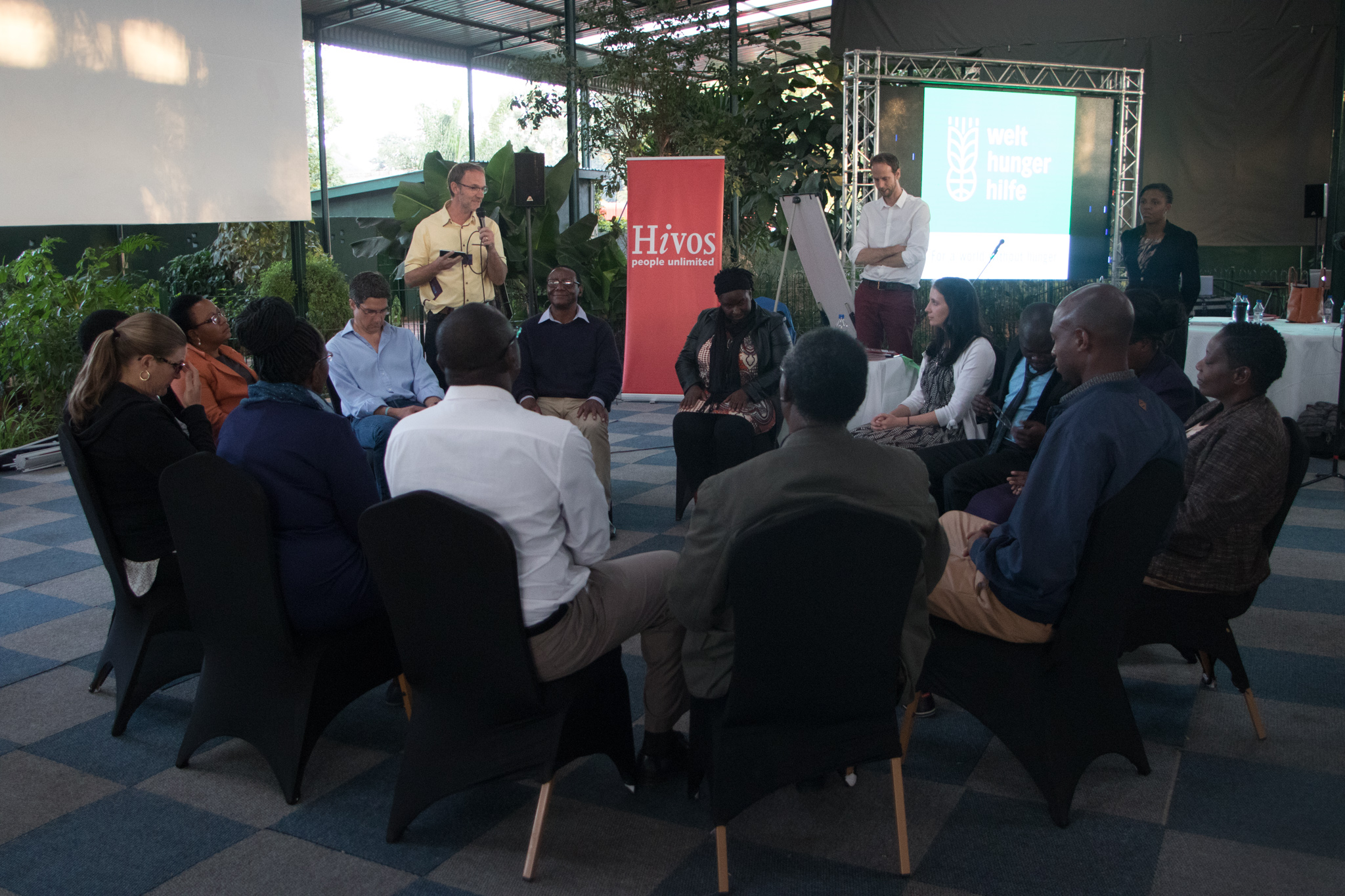By Byron Mutingwende
The “DisruptFOOD!” programme by Hivos that focuses on renewable green energy and sustainable food systems has seen the advent of simple smart technologies to promote good health and wellbeing.
Dr. Ephraim Whingwiri, the Founder and Director of Zim Earthworm Farms has come up with an interesting innovation that promotes the use of organic fertilizers and environmentally-friendly water treatment.
“I saw a business opportunity in the mounting solid waste challenges including the evasive aquatic weeds choking water bodies. I linked this to an agricultural ecological imbalance and the possible loss in productivity due to ecological imbalance. I cannot remember how I decided to enrich the waste by use of earthworms. I have now recognised the earthworm as the missing link in sustainable development not many recognise that. I see it as a business opportunity,” Hwingwiri said.
He said earthworms do many things for mankind from itself as food, to medicine, to dishwasher, to organic fertilizers, to sewage treatment, cosmetics and animal feed.
Apart from fertilizer, the scientist has invented a system for wastewater treatment, which can replace the sceptic tank. The septic tank has major challenges, especially underground water contamination. It produces methane – one of the greenhouse gases that destroy the atmosphere.
“My innovation is based on earthworms and is aerobic. I propose to rehabilitate Harare as a whole so that the water that flows into the sewer network in the capital is clean, partially treated and with no pathogens and smell. In the process, water treatment costs will be reduced significantly,” he said.
The innovation augurs well with the 2017 UN Water Theme, which says, “Take wastewater as a resource, treat waste water at source and move away from centralised systems.”
Hardlife Mudzingwa, the Programme Manager of the Community Water Alliance said the innovation was indeed a revolution since it embraces an inclusive business model by reaching out to the communities to breed earthworms, which they can sell to Zim Earthworm Farms.
A proponent of climate smart agriculture, Raymond Eric Zvavanyange said the country should learn from the Cuban experience.
“When the Soviet Union broke up, there was no chemical fertilizer coming to Cuba from Russia. Some scientists brought two boxes of earthworms to Cuba. With full government support, Cuba today is one of the leading producers of vermicomposting,” Zvavanyange said.
The demonstration done by Zim Earthworm Farms in conjunction with Agritex have shown that chemical fertilizers can be reduced by 50% and still achieve a good or even better yield. In Philippines, tobacco farmers use 50% chemical fertilizers and 50% vermicomposting and achieve high yields. Since Zimbabwe does not have sufficient foreign currency to import chemical fertilizers, the use of organic fertilizers provides low hanging fruits.
Zimbabwe generates over 1 million tonnes of biodegradable waste every year. Most of that waste goes to landfills or becomes mounds of waste or is burnt. There is need for the government to come up with a biodegradable waste management policy.
Marnix Van Holland, the Programme Development Manager of Social Entrepreneurship at Hivos said the enterprises are the potential agents of change to disrupt the unsustainable food systems of Southern Africa.
“We at Hivos will support those entrepreneurs that run an economically sound business that has a strong focus on socio-cultural and environmental impact. Only then, can we tackle some of the greatest problems of today’s society; being food security, poverty and fighting the adverse effects of climate change. We need to disrupt the unsustainable food systems on all levels from production, to distribution and consumption,” Holland said.
Other projects focus on beekeeping, sustainable harvesting and processing, smart linkages through mobile applications and consumer awareness.
